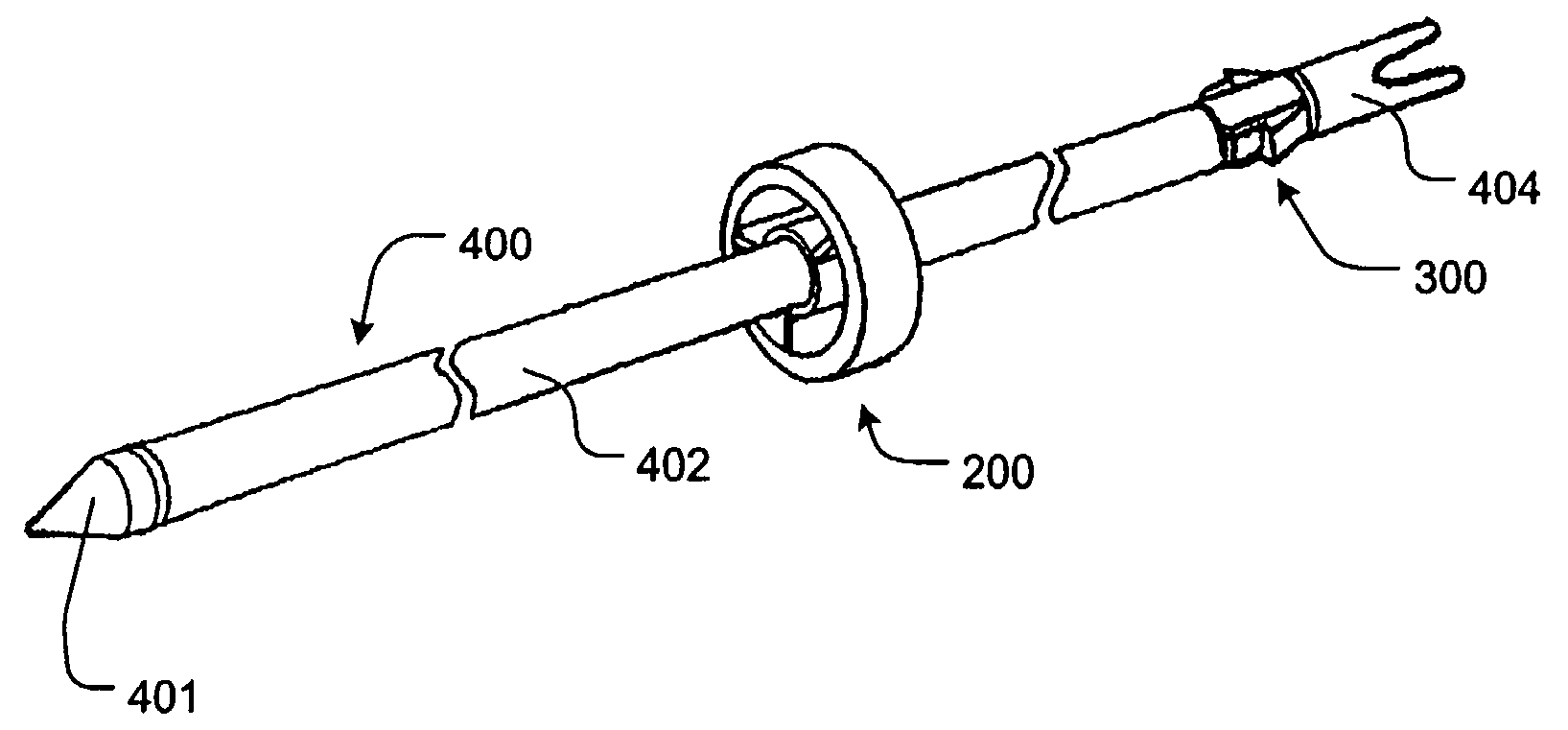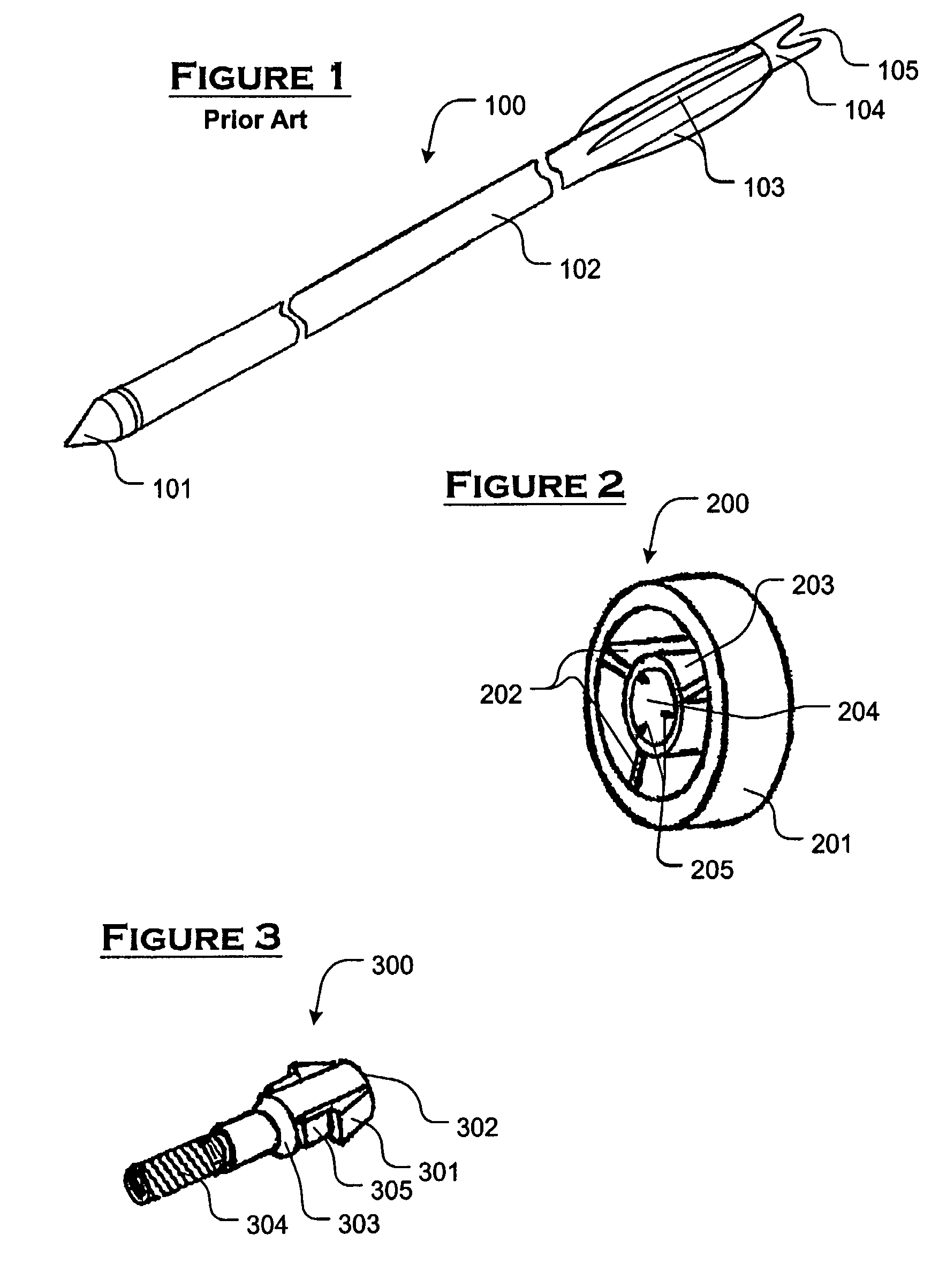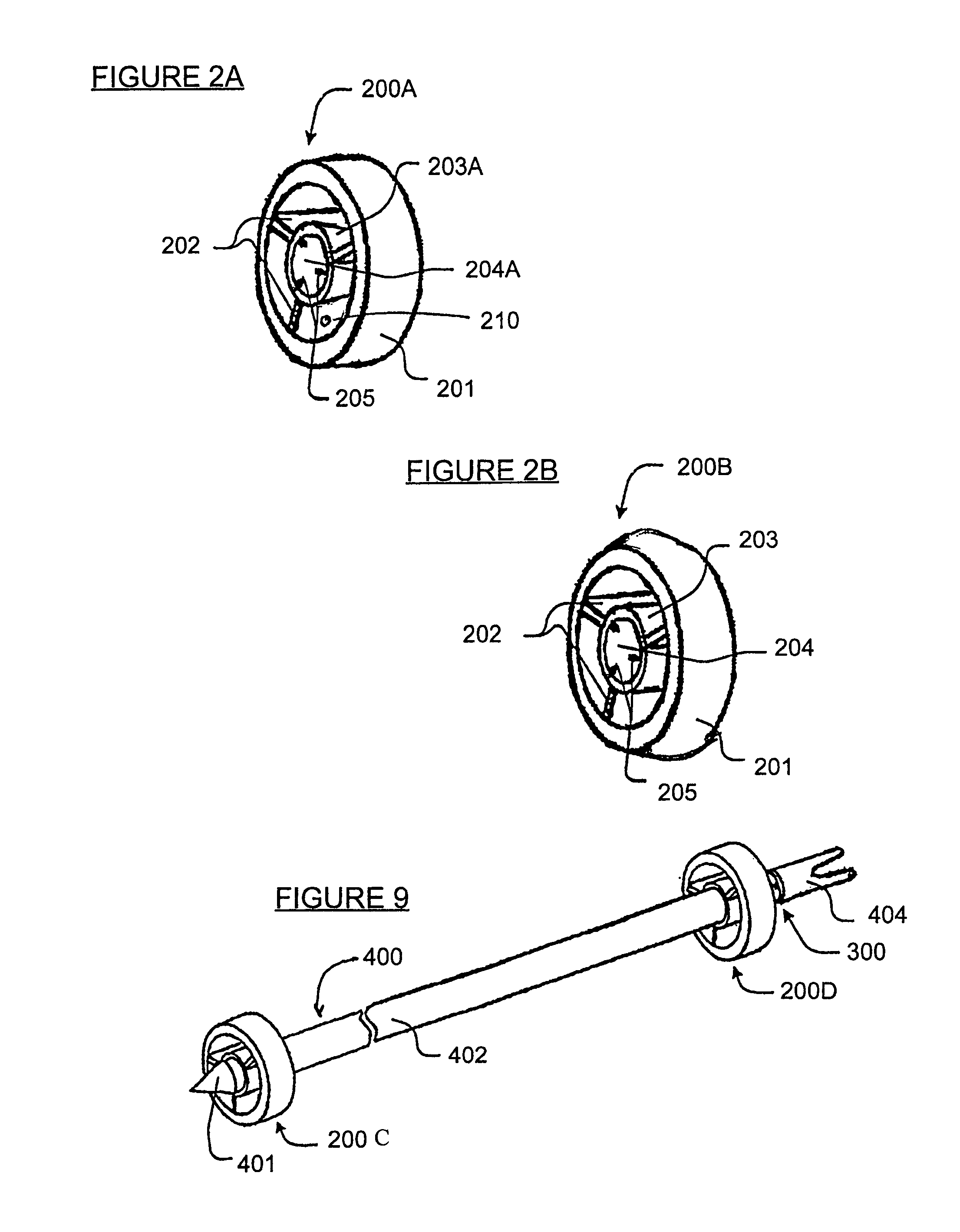Sliding arrow stabilizer
a stabilizer and arrow technology, applied in the direction of arrows, weapons, projectiles, etc., can solve the problems of inconvenient use, inconvenient use, and inability to adjust the stabilizer, so as to prevent further rearward travel of the stabilizer, eliminate the interference at the arrow rest, and eliminate the inconsistencies and costs associated.
- Summary
- Abstract
- Description
- Claims
- Application Information
AI Technical Summary
Benefits of technology
Problems solved by technology
Method used
Image
Examples
Embodiment Construction
[0030]As illustrated in FIG. 1, a conventional arrow 100 comprises a tip 101, a shaft 102, and a prior art stabilization system comprising a plurality of fins 103 as fletching. The fins 103 are fixed to the shaft 102, e.g., by gluing, and are easily damaged or lost through contact with other surfaces, e.g., with the bow used to launch the arrow 100, with butt material (backing, bales, or dirt designed to stop and hold arrows) of a paper target, or with a game animal. The trailing end of the arrow 100 may comprise a recess (not shown) formed therein for engagement (e.g., via a plurality of threads) with a nock 104 that secures the arrow 100 in place before launch, e.g., by disposing a bowstring (not shown) within a notched area 105 of the nock 104.
[0031]Turning now to FIG. 2, an exemplary arrow stabilizer 200 in one embodiment of the present invention is illustrated. This “sliding” stabilizer is field replaceable, reduces assembly labor cost, and significantly improves the stability ...
PUM
 Login to View More
Login to View More Abstract
Description
Claims
Application Information
 Login to View More
Login to View More - R&D
- Intellectual Property
- Life Sciences
- Materials
- Tech Scout
- Unparalleled Data Quality
- Higher Quality Content
- 60% Fewer Hallucinations
Browse by: Latest US Patents, China's latest patents, Technical Efficacy Thesaurus, Application Domain, Technology Topic, Popular Technical Reports.
© 2025 PatSnap. All rights reserved.Legal|Privacy policy|Modern Slavery Act Transparency Statement|Sitemap|About US| Contact US: help@patsnap.com



